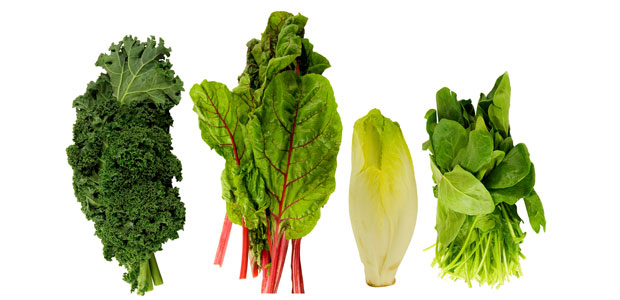Advertisement
Leafy Winter Vegetables
It's easy being green

A bevy of beautiful greens await you at your local market; maybe you’ve walked right by them, as they are often used just for garnish. But green leafy vegetables like curly leaf kale and colourful chard are so powerful, we can get huge nutritional benefits from eating them daily.
Not only are they affordable, low in calories, fat-free, and delicious, they can be made into a variety of dishes. This month, when fresh summer salad makings can be difficult to find, I encourage you to consider these winter greens. Look for curly leaf kale in green and purple varieties, large flat collard leaves, beet tops, colourful chard, and traditional spinach.
Prepare winter greens by folding the large leaves in half and use a sharp knife to remove the spine, which is often fibrous and woody. Then carefully bunch the leaves and chop them crossways into fine, matchstick-sized strips. In this format the greens become highly versatile and can be added by the handful to soup, stew, stir-fry, pasta sauce, lasagne, and even lightly steamed and stirred into mashed potatoes. The greens only need five to 10 minutes to cook, so add them right at the end of the cooking time. Ideally, they are ready when they turn a bright, iridescent green.
Winter greens are a good source of minerals such as iron, folates, antioxidants, and fibre. In winter, green leafy vegetables added to nearly every dish are an easy way to include these nutrients in your diet.
Recipes




